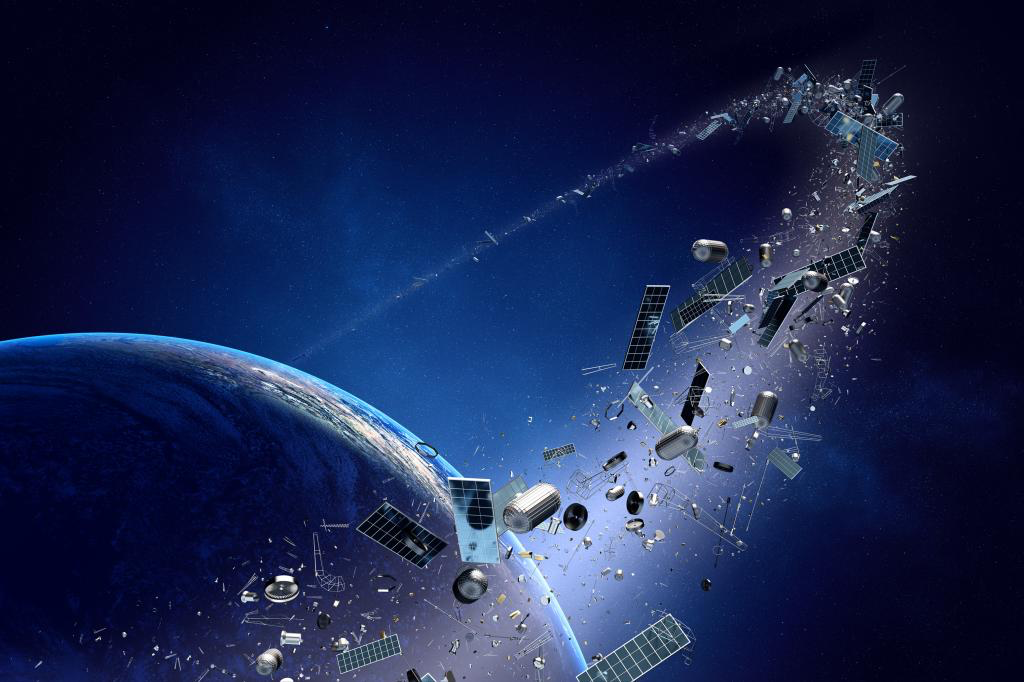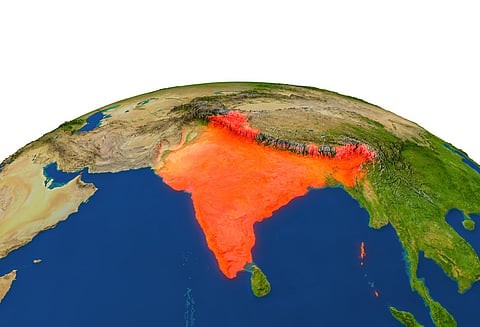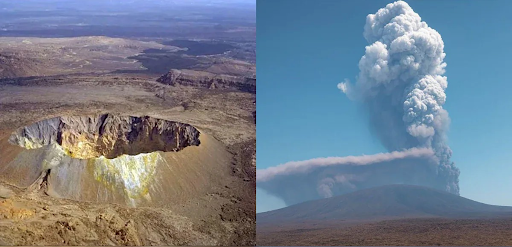Description

Disclaimer: Copyright infringement not intended.
Context
The pressing issue of space debris and the call for a legally-binding treaty to address the challenges posed by the growing amount of debris in Earth's orbit.
Details
- A treaty similar to the recent UN treaty for conserving and sustainably using the high seas is advocated by scientists to protect Earth's orbit.
Rising Satellite Numbers and Space Debris
- Expected increase in satellites orbiting Earth from 9,000 to 60,000 by 2030.
- Over 100 trillion untracked fragments of old satellites in orbit.
Space Debris and its Composition
- More than 27,000 tracked pieces of "space junk," including non-functional spacecraft and debris from launch vehicles.
- Space debris generated from satellite disintegration, collisions, and anti-satellite tests.

Impact of Space Debris and Fragmentation
- Russian COSMOS 2499 satellite's disintegration resulted in 85 tracked pieces at an altitude of 1,169 km.
- Collisions between satellites lead to the release of numerous new fragments.
Need for a Treaty and Responsibilities
- Proposed treaty should hold producers and users accountable for satellites and debris.
- Calls for international legislation with fines and incentives for responsible actions.
Global Cooperation and Corporate Responsibility
- Treaty should emphasize commitment to global cooperation among countries using Earth's orbit.
- Lack of incentives for companies to clean up orbits or include de-orbiting functions in satellites.
Guidelines and Challenges
- Current absence of a comprehensive international treaty for minimizing orbital debris.
- UN guidelines exist for mitigating space debris, but their enforcement is limited.
- The Outer Space Treaty faces hindrances due to geopolitics, technology changes, and commercial interests.
Risk and Consequences
- Space debris could lead to a chain reaction of collisions, rendering Earth's orbit unusable.
- Parallels drawn between space debris and oceanic plastic pollution.
Learning from the Ocean Initiative
- The need for collaborative efforts akin to the UN Ocean initiative to address space debris.
- Avoiding the mistakes in plastic pollution mitigation and working collectively to prevent a crisis.
Safeguarding Space Exploration and Growth
- Minimizing lower Earth orbit pollution essential for continued space exploration and satellite advancements.
- Emphasizing the importance of a global agreement to prevent a detrimental outcome.
|
PRACTICE QUESTION
Q) Examine the parallels drawn between space debris and oceanic plastic pollution, emphasizing the importance of collaborative efforts and international cooperation. (150 words)
|
.jpg)
https://www.downtoearth.org.in/news/science-technology/scientists-call-for-legally-binding-treaty-to-protect-earth-s-orbit-here-s-why-88160











